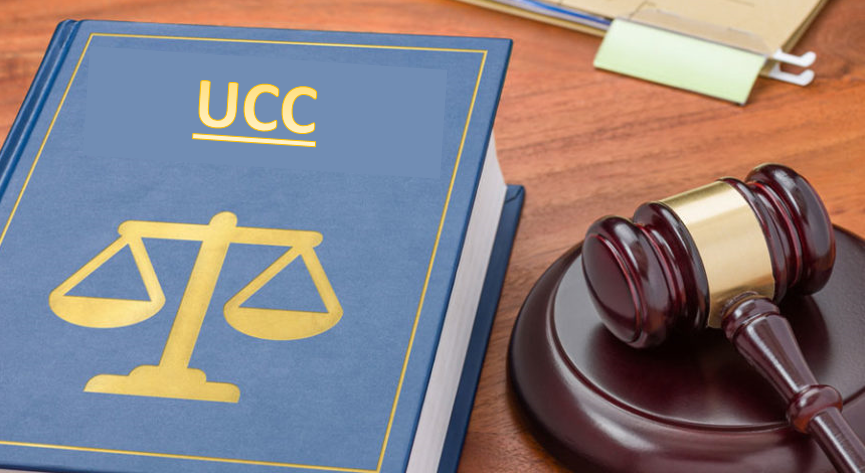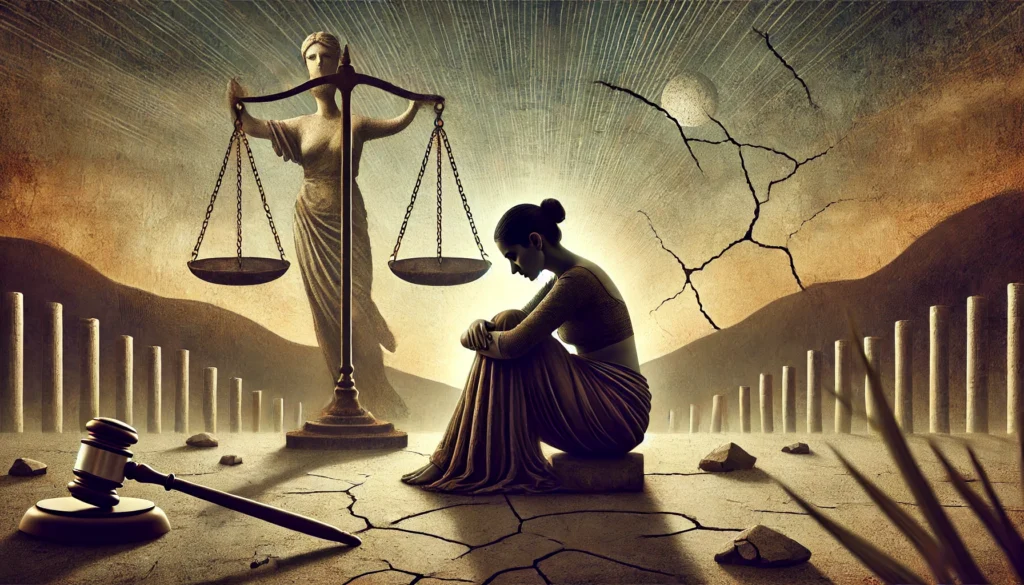Published On: November 17th 2025
Authored By: Aasma Khan
GJ Advani Law College
- Court : Supreme Court of India
- Bench : Seven Judge Bench (Constitutional Bench)
- Chief Justice Dr. Dhananjaya Y. Chandrachud (Author)
- Justices A.S. Bopanna, M.M. Sundresh, P.S. Narasimha, J.B. Pardiwala, Sanjay Kumar, Manoj Misra
- Date of Judgment : March 4, 2024
- Legal Provisions Involved : Articles 105(2) and 194(2) of the Constitution of India, Section 7 of the Prevention of Corruption Act, 1988
- Judgment Overruled : P.V. Narasimha Rao v. State (CBI/SPE), (1998) 4 SCC 626
Introduction
The case of Sita Soren v. Union of India is a pivotal constitutional law judgment that redefines the scope of legislative immunity under Articles 105(2) and 194(2) of the Indian Constitution. These provisions grant immunity to Members of Parliament (MPs) and Members of Legislative Assemblies (MLAs) for actions related to their speeches or votes in the legislature. The Supreme Court, in a unanimous decision by a seven-judge bench, addressed the critical question of whether such immunity extends to legislators accused of accepting bribes in connection with their legislative functions, particularly voting. This judgment overturned the controversial 1998 decision in P.V. Narasimha Rao v. State, which had granted immunity to legislators who accepted bribes and fulfilled the agreed-upon action (e.g., casting a vote). The Sita Soren ruling establishes that bribery is not protected by parliamentary privileges, emphasizing accountability and the integrity of democratic institutions. The case has significant implications for anti-corruption laws and the balance between legislative independence and the rule of law in India.
Background and Facts
Sita Soren, a member of the Jharkhand Legislative Assembly (JLA) representing the Jharkhand Mukti Morcha (JMM), was accused of accepting a bribe to vote for an independent candidate during the 2012 Rajya Sabha elections. The elections used an open ballot system, which revealed that Soren ultimately voted for a JMM candidate instead of the independent candidate allegedly offering the bribe. Following a complaint to the Chief Election Commissioner, the Central Bureau of Investigation (CBI) investigated and filed a chargesheet against Soren under Section 7 of the Prevention of Corruption Act, 1988 (PCA), along with charges of criminal conspiracy (Section 120B) and bribery (Section 171E) under the Indian Penal Code, 1860.
Soren sought to quash the criminal proceedings in the Jharkhand High Court, claiming immunity under Article 194(2) of the Constitution, which states that no member of a state legislature shall be liable to any proceedings in any court for anything said or any vote given in the legislature or its committees. She relied on the precedent set by P.V. Narasimha Rao v. State (1998), where a five-judge bench, in a 3:2 majority, held that MPs who accepted bribes and voted as agreed were immune from prosecution under Article 105(2), which provides similar immunity for MPs. The Jharkhand High Court dismissed Soren’s plea, reasoning that since she did not vote for the bribe-giver, there was no nexus between the bribe and her legislative act of voting, thus rendering Article 194(2) inapplicable.
Soren appealed to the Supreme Court via a Special Leave Petition (SLP) in 2014. The case was initially heard by a two-judge bench, which, recognizing the substantial public importance of the issue, referred it to a three-judge bench on September 23, 2014. On March 7, 2019, the three-judge bench noted that the issue was addressed in P.V. Narasimha Rao but, due to its wide ramifications, referred it to a five-judge bench. On September 20, 2023, the five-judge bench expressed doubts about the correctness of P.V. Narasimha Rao and referred the matter to a seven-judge bench to reconsider the scope of legislative immunity in bribery cases.
Legal Issues
The Supreme Court framed the following key issues :
1.) Scope of Legislative Immunity : Does Article 194(2) (and by extension Article 105(2)) grant immunity to legislators for accepting bribes in connection with their legislative functions, such as voting in the legislature?
2.) Precedent Reconsideration : Should the majority decision in P.V. Narasimha Rao v. State (1998), which granted immunity to legislators who accepted bribes and acted accordingly, be overruled?
3.) Bribery and Legislative Functions : Is the act of accepting a bribe intrinsically linked to the legislative function of voting, or is it a separate criminal act not protected by parliamentary privilege?
4.) Constitutional Balance : How should the court balance the need for legislative independence with the imperative to combat corruption and uphold the rule of law?
Arguments of the Parties
Appellant’s Arguments (Sita Soren)
- Reliance on P.V. Narasimha Rao: Soren’s counsel, led by Senior Advocate Raju Ramachandran, argued that the 1998 judgment was a well-reasoned precedent granting “absolute protection” to legislators for acts on the floor of the House, including voting. They contended that the alleged bribery was intrinsically linked to Soren’s legislative function of voting in the Rajya Sabha elections, thus protected under Article 194(2).
- Stare Decisis : The principle of stare decisis, which binds courts to follow precedents, was invoked to argue that P.V. Narasimha Rao should not be disturbed, as it had stood for over 25 years. Overruling it would undermine legal stability.
- Legislative Independence : Soren’s counsel argued that immunity was essential to protect legislators from harassment by executive authorities or political opponents, ensuring fearless functioning and preserving democratic processes. Weakening this immunity could deter legislators from performing their duties independently.
- Nexus with Voting : They asserted that the act of accepting a bribe was connected to the legislative act of voting, as the bribe was intended to influence her vote, even if she did not vote as agreed.
Respondent’s Arguments (Union of India)
- Bribery as a Criminal Act : The Attorney General and Solicitor General, representing the Union, argued that accepting a bribe is a distinct criminal act under the PCA, separate from the legislative function of voting. Immunity under Articles 105(2) and 194(2) was intended to protect legitimate legislative functions, such as free speech and voting, not criminal activities like bribery.
- Undermining Democracy : They contended that granting immunity for bribery would undermine public trust in democratic institutions and enable legislators to misuse their positions with impunity. A healthy democracy requires rejecting immunity for corrupt acts.
- Critique of P.V. Narasimha Rao : The respondents argued that the majority view in P.V. Narasimha Rao was flawed, as it created an anomaly by granting immunity to bribe-takers who fulfilled the bribe agreement while prosecuting those who did not. This interpretation was inconsistent with the constitutional spirit and the rule of law.
- Functional Test for Privilege : They emphasized that parliamentary privileges must be tethered to the collective functioning of the legislature and bear a functional relationship to a legislator’s essential duties. Bribery lacks such a nexus, as it corrupts the legislative process.
Judicial Reasoning
The seven-judge bench, led by Chief Justice D.Y. Chandrachud, delivered a unanimous 135-page judgment that critically examined the scope of parliamentary privileges and overruled P.V. Narasimha Rao. The key points of the court’s reasoning are as follows :
1.) Interpretation of Articles 105(2) and 194(2) :
- The court clarified that the immunity under Articles 105(2) and 194(2) is intended to protect the core legislative functions of speech and voting, ensuring legislators can perform their duties without fear of legal repercussions. However, this privilege is not absolute and does not extend to criminal acts like bribery, which undermine the integrity of the legislative process.
- The court introduced a two-fold test for determining whether an act qualifies for immunity :
- The privilege must be connected to the collective functioning of the legislature.
- The privilege must bear a functional relationship to the discharge of a legislator’s essential duties. Bribery fails both prongs, as it is a criminal act that subverts, rather than supports, legislative functions.
2.) Overruling P.V. Narasimha Rao :
- The court found the majority decision in P.V. Narasimha Rao to be constitutionally untenable. The 1998 ruling created an anomaly by granting immunity to legislators who accepted bribes and voted as agreed, while denying it to those who did not (e.g., Ajit Singh, who abstained from voting). This interpretation was deemed illogical and contrary to the rule of law.
- The majority in P.V. Narasimha Rao had adopted an overly broad interpretation of Article 105(2), presuming that enhanced privileges would improve legislative functioning. The Sita Soren bench rejected this, holding that privileges must be narrowly construed to align with constitutional mandates and public interest.
- The court emphasized that the doctrine of stare decisis is not inflexible. Perpetuating an erroneous precedent detrimental to public welfare justified overruling P.V. Narasimha Rao.
3.) Bribery as a Distinct Offense :
- The court held that the offense of bribery under Section 7 of the PCA is complete upon acceptance of the bribe, regardless of whether the agreed-upon act (e.g., voting) is performed. Thus, the act of accepting a bribe is not protected by legislative immunity, as it lacks a nexus with the legislative process.
- The court distinguished between the act of bribery (a criminal offense) and the act of voting (a legislative function), rejecting the argument that bribery is intrinsically linked to voting.
4.) Democratic Integrity and Public Trust :
- The judgment underscored that bribery by legislators erodes public trust and compromises the deliberative democracy enshrined in the Constitution. The court described Parliament and state legislatures as the “grand inquest of the nation,” whose integrity must be preserved to uphold democratic accountability.
- Allowing immunity for bribery would create a perverse incentive for legislators to engage in corrupt practices, undermining the constitutional objective of fostering an effective parliamentary democracy.
5.) Rajya Sabha Elections and Legislative Functions :
- The court clarified that voting in Rajya Sabha elections, as well as elections for the President and Vice-President, falls within the scope of legislative functions under Article 194(2). However, this does not extend immunity to criminal acts like bribery associated with such voting.
Decision
The Supreme Court unanimously held that :
- MPs and MLAs do not enjoy immunity under Articles 105(2) and 194(2) for accepting bribes in connection with their legislative functions, including voting or making speeches.
- The majority decision in P.V. Narasimha Rao v. State (1998) was overruled, as it was constitutionally flawed and created an anomalous distinction between bribe-takers who acted as agreed and those who did not.
- The offense of bribery under the PCA is complete upon acceptance of the bribe, and such acts are not protected by parliamentary privilege.
- Sita Soren’s appeal was disposed of, with the court affirming that she could not claim immunity under Article 194(2). The criminal proceedings against her under the PCA would continue.
Implications
The Sita Soren judgment is a constitutional milestone with far-reaching implications for Indian democracy and anti-corruption jurisprudence :
1.) Strengthening Anti-Corruption Laws : By denying immunity for bribery, the court has bolstered the enforcement of the PCA, ensuring that legislators cannot evade accountability for corrupt acts. This aligns with India’s commitment to combat corruption and uphold the rule of law.
2.) Clarifying Legislative Privileges : The two-fold test for parliamentary privileges provides a clear framework for determining when immunity applies, emphasizing its connection to legitimate legislative functions. This prevents misuse of privileges to shield criminal conduct.
3.) Protecting Democratic Integrity : The ruling reinforces public trust in legislative institutions by ensuring that corrupt practices do not enjoy constitutional protection. It underscores the importance of free will and conscience in legislative deliberations.
4.) Judicial Precedent and Stare Decisis : The decision demonstrates the court’s willingness to overrule erroneous precedents when they harm public interest, reinforcing the flexibility of stare decisis in constitutional adjudication.
5.) Impact on Future Cases : The judgment sets a robust precedent for future cases involving allegations of bribery against legislators, ensuring that such acts are subject to criminal prosecution without the shield of parliamentary privilege.
Critical Analysis
The Sita Soren judgment is a bold step toward reconciling legislative independence with accountability. The overruling of P.V. Narasimha Rao corrects a long-standing judicial anomaly that inadvertently legitimized corruption under the guise of parliamentary privilege. The court’s two-fold test is a pragmatic approach to delineating the boundaries of immunity, ensuring that only acts essential to legislative functioning are protected. However, some critics, as noted in academic commentary, caution that the “essentiality test” must be carefully applied to avoid unduly restricting legitimate legislative functions. For instance, the test’s focus on collective functioning could potentially limit privileges for individual legislative acts not directly tied to the House’s operations, requiring further judicial clarification in future cases.
The judgment also reflects a broader judicial trend of prioritizing constitutional mandates and public welfare over rigid adherence to precedent. By emphasizing the deleterious impact of bribery on democracy, the court aligns with global anti-corruption norms and strengthens India’s democratic framework. However, the ruling does not address the practical challenges of prosecuting high-profile legislators, where political influences may complicate investigations and trials.
Conclusion
Sita Soren v. Union of India (2024) marks a significant advancement in Indian constitutional law by redefining the scope of legislative immunity and reinforcing the principle that no individual, regardless of their position, is above the law. By overruling P.V. Narasimha Rao, the Supreme Court has dismantled a flawed precedent that shielded corrupt legislators, thereby enhancing accountability and public trust in democratic institutions. The judgment’s emphasis on the rule of law, democratic integrity, and the limited scope of parliamentary privileges sets a robust framework for future adjudication. As India continues to grapple with corruption, this decision serves as a beacon for upholding transparency and accountability in governance.




